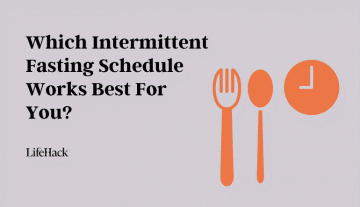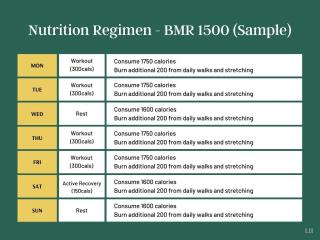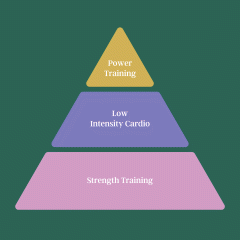In helping many people solve their relationship woes, I am often asked for the signs of a good relationship.
Well, what’s fascinating about relationships is the dynamics of two individuals coming together and staying together amid an array of perceptions and misperceptions.
Our relationships are not only influenced by our current actions but also by our past relationships and the life experiences that we bring forward into the current relationship. How we deal with misperceptions and misunderstandings determines the strength and health of our relationship and the level of happiness we are able to experience.
Much of the subconscious programming that takes place throughout our life causes us to sabotage our happiness by preventing us from engaging effectively, especially when we become emotionally triggered.
These mostly unconscious “scripts,” which we tend to run on autopilot, include our thoughts, words, and actions that result from these. Some may even refer to them as “baggage.” While we can rewrite these scripts and stop them from contaminating our relationships, we only become aware of them when we are in an emotionally empowered state.
So, what are the signs of a good relationship?
It boils down to these four essential requirements:
Emotional empowerment Aligned attraction Sexual functioning You and your partnerWhile we can take it upon ourselves to develop as an individual, a strong and healthy relationship results from both personal growth and teamwork with our partner in order to resolve any problems.
Let’s take a look at how we can do this.
1. Emotional Empowerment
A clear sign of a good relationship is that both partners stay focused on what they want to create and how they want to feel. It can be too easy to blame our partner when we’re not feeling good about ourselves or somewhat overwhelmed with the curveballs that life seems to throw at us continually.
You may have heard of the saying, “Making mountains out of molehills.” When we’re not in charge of our emotional state, that’s precisely what we do!
Someone also said, “It’s not what you say, but how you say it.” Our words and the emotional power behind them are either being constructive or destructive in our relationships.
By trying to override your emotions and dredging up past situations, you may blow a current situation entirely out of context, keep retriggering yourself and your partner, and prevent essential issues from being resolved. Aside from that, it makes you feel disconnected.
As a reminder, allowing yourself to indulge in petty annoyances and sarcastic comments will likely drive a wedge between you and your partner. So, is that worth your attention?
When we focus on what we don’t want, we continually default to the old subconscious programming cultivated from our life experiences. These “scripts” can become self-destructive when expressed through negative rumination and self-talk or critical observations of our partner, rather than being the fun, uplifting, and naturally motivating partner that they fell in love with.
Many couples start competing against each other when they are emotionally triggered instead of supporting each other to create the best outcome. While we can quickly become obsessed with being right (or not being wrong), it’s essential to stay present, focus on how we want to feel, and align our words and actions toward that outcome.
Couples who enjoy a strong and healthy relationship consciously monitor their emotional states and can therefore influence the impact of their verbal and non-verbal communication in a positive manner. This offers a long-term benefit of enhancing their overall desire to be together and connect on more intimate levels.
2. Attraction in Alignment
Known as the love and bonding hormone, oxytocin doesn’t just play an important role in intimacy. In truth, it’s also vital for increasing trust and attraction between two people. Synthesized in the human brain when you trust someone, the oxytocin molecule also motivates reciprocation.
We’re living in an age where an individual’s independence is ruling the day, and the social codes of chivalry have become sadly redundant. However, it’s never a good time to become complacent in how we interact with each other and in respecting the environment we share.
According to Paul Zak, a neuroscientist and researcher at Claremont Graduate University, oxytocin is generated in the brain only after some concrete event or action, such as someone making way for you in the street.
“When someone does something nice for you such as holding a door, your brain releases oxytocin, and it down-regulates the appropriate fear you have of interacting with strangers.” — Paul Zak
Suddenly, you feel like the person in front of you is not a threat. Then, according to Zak, this feeling disappears quickly for a good reason,
“If you just had high levels of oxytocin, you would be giving away resources to every stranger on the street. So, this is a quick on/off system.”
This has important implications for those in a relationship. Zak says:
“If you treat me well, in most cases my brain will synthesize oxytocin and this will motivate me to treat you well in return.”
In a relationship, our actions and behaviors are either attracting or repelling our partner. This is especially true when we have conflicting values. Common conflicting values include personal hygiene, health and fitness, and general tidiness.
It’s important to know and respect what’s important to our partner. After all, one of the real signs of a good relationship is having the desire to continually step up and live your “A” game. When our partner takes the time to communicate something important to them, we need to acknowledge that it’s essential to keep a relationship long-term.
While we like to think that our partner will be attracted to us no matter what, this is not realistic at all. “A” is for attraction, and we need to keep attracting our partner instead of being lazy and pretending we can get away with unappealing or inappropriate behaviors.
Any unresolved issue can build up resentment and undermine the quality of a relationship. However, the thought of approaching a challenging topic can increase stress and anxiety to the point where it is nearly impossible to clearly communicate the problem without it sounding like an accusation or blame.
Due to the fear of retriggering our partner by bringing up the same topic repeatedly, we often delay dealing with the issues that are of utmost importance to us. Over time, it can result in frustration, annoyance, and disconnection. We are sentient beings, so this type of emotional resistance can often be felt by the other person.
Furthermore, we usually communicate a part of a request out loud and then complete the reasoning behind it internally. Unfortunately, our partner doesn’t hear this internal monologue, so they have no idea about the extent or importance of our need. Therefore, many problems aren’t fully discussed, and the main issue remains unresolved.
“Prolonged stress and anxiety are like poison to oxytocin,” Paul Zak said. The underlying biological hypothesis is that stress — particularly the type that does not have a clear ending point — inhibits oxytocin release.
In a healthy relationship, both partners can retain the desire to step up and continue to attract each other through verbal and non-verbal communication. Try remembering the following:
Every person has their own preference for how things are done, so effective communication requires actively listening as well as clearly communicating your needs. Before talking about an important matter, make sure you have your partner’s full attention. Then, try to keep your words focused in the here and now. Instead of rehashing a similar experience from your past for context and risking triggering each other emotionally, get to the point and explain what you want at once. If you feel uncomfortable doing that, try starting a request with “I like it when…” or “It makes me feel…” You may also ask, “How can we work together to create a win-win situation?” If something is important enough for your partner to mention out loud, then you must respect, consider, and adhere to it whenever possible. For example, if a partner is brave enough to open up about their need for sexual intimacy to feel more connected, it may be an issue that needs to be addressed in your relationship.According to psychiatrist and Emory University professor Larry Young, increased intimacy can strengthen your connection as a couple, especially when you combine it with other rewarding experiences that get your brain’s reward system going.
Verbally appreciate your partner’s effort in supporting your needs and make sure to retain your individuality and interests outside the relationship to keep your mutual attraction.
3. Sexual Function
Sex is the one thing that differentiates a strong, healthy relationship from a platonic friendship. Sexual intimacy is one of the most important signs of a good relationship and has often been described as the glue that holds a relationship together.
Sexual intimacy allows two people who seek the ultimate connection with each other to come together. However, intimacy problems can lead to separation, loneliness, and disconnection — feelings that can eventually tear a relationship apart.
Unfulfilling sex leads to an increase in stress hormones which results in a lowered libido as sexual intimacy becomes a souce of discomfort on all levels. A common cause of a low libido is, for example, sexual function issues such as early ejaculation and erectile dysfunction challenges in men; and orgasmic dysfunction for women. An unwanted sexual technique such as hard and fast or constant changes of position can also be off-putting.
While work stress, children rearing, and communication issues can all lower your libido and affect your overall desire for sex, a sexless marriage or relationship is not favorable for the vast majority of couples long-term.
One of the most important things for women in a relationship is to experience a sense of connection or feel loved and close to their partner. But this is where things can become tricky pretty quickly, considering women naturally have much higher levels of the bonding hormone oxytocin than men. For men, higher levels of oxytocin are generated through intimate connections.
What is the takeaway here, you may ask? Our hormones influence our behaviors, and oxytocin is said to be responsible for allowing us to experience love. In reality, studies have also shown that oxytocin can even work as the brain’s “moral molecule.” The more intimate moments we have, the more our bodies release the said hormone.
This is especially important for a male to feel more connected and attentive toward his partner. Research indicates that a man who is often sexually intimate with his beloved can produce increased levels of oxytocin. In turn, it boosts his desire to hold and connect with his partner and stimulate positive social interaction.
A positive sign of a strong and healthy relationship is both partners’ desire to be intimate with each other. If either of the partners has little or no desire for initiating intimacy, then they need to address the issues mentioned in this article to restore intimacy in order to enjoy a truly fulfilling partnership.
Final Thoughts
The most important sign of being in a strong and healthy relationship is that you feel happy within yourself and in your connections.
While it’s not always possible to stay happy and connected with someone, ensuring that you are emotionally aligned with yourself and aware of your partner’s needs will go a long way to guarantee the health and longevity of your relationship.
After all, compelling narratives also cause oxytocin release and can affect your attitudes, beliefs, and behaviors.
More on Maintaining a Healthy Relationship
Featured photo credit: Candice Picard via unsplash.com





























































